Get SEO Marketing Generating More Sales for Your Business
Discover how SEO will drive your website to the top!
If you are wanting to learn more about SEO marketing, here is an in-depth look. You can read through every section or you can jump to the sections that you want to learn about right away. We have over 10 years experience in SEO marketing so we'd love to share our expertise with you.
This article will cover:
1. What is SEO and How It Works?
8. What Does SEO Mean in Marketing?
1. What is SEO and How It Works?
- SEO is the process and tasks that rank websites higher in search engines like Google
- SEO Marketing can get more qualified leads to your website and help them through your conversion funnel.
- SEO Marketing can can help your business to rank higher in search engine results and more!
- SEO Marketing plays an integral role in helping your customers find you online
- Google and Bing use slightly different criteria to rank their results. Find out what they are.
- SEO is organic and Google Ads or Bing Ads are paid
8. What Does SEO Mean in Marketing?
- Above all, SEO can get your business seen.
- Google will be shifting its focus more towards user intent than simply matching keywords. Learn what else is new.
- It depends on a number of factors but in most cases, SEOs need four months to a year to start seeing results.
- If you have the same material at more than one web address, then that can impact your rankings in search engines. Learn about the guidelines.
"The purpose of SEO is to optimize your website so that it shows up organically, without paying a fee, in search engine results."
1. What is SEO and How It Works?
SEO stands for search engine optimization. SEO is a process that companies go through to make sure that their site is ranked high by the search engines. The purpose of SEO is to optimize your website so that it shows up organically, without paying a fee, in search engine results. The wonderful thing about SEO is that it usually generate $10.71 in revenue for every dollar spent. That's an incredible return on your investment!
Amount Spent vs. Revenue Generated by SEO
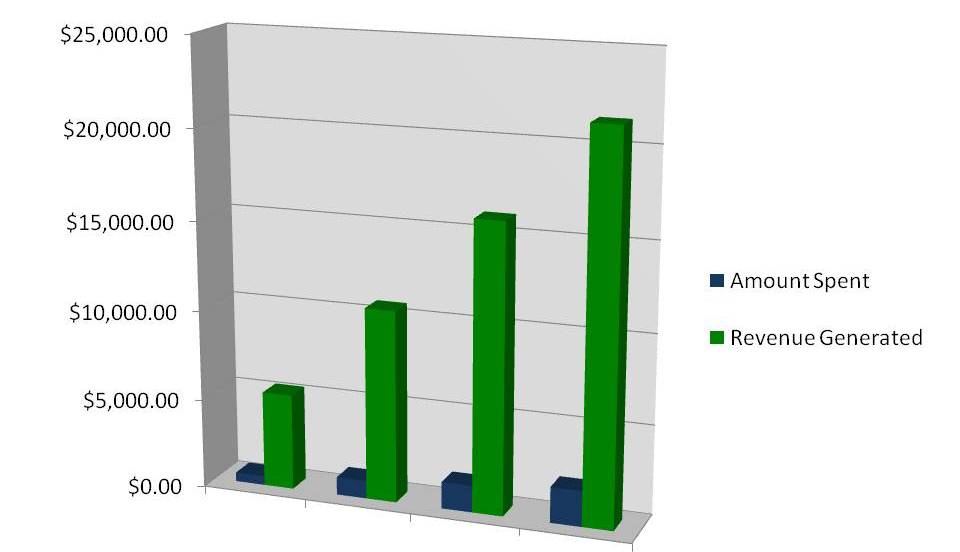
SEO usually generate $10.71 in revenue for every dollar spent
SEO involves you making specific changes and adding certain components to your website design and content that will make your site more appealing to a search engine. You are counting on these changes to move your website up in the search engine's opinion, so that it will rank your site higher. Your goal is to get your webpage to display in one of the top positions on the search engine results page (SERP).
The goal of Search engines such as Google and Bing is to give their users the best service possible. They do this by ranking their results pages according to what they consider to be the highest quality, most authoritative, and relevant pages for what the searcher is looking for. They do this by scanning, known as crawling, different websites to see what they are about, how easy they are to read and navigate and what their content is like.
The following video will step you through the different components in a SERP. If you are particularly interested in learning more about organic results, then skip ahead to the 3:40 mark in the video. You may also be interested in listening to the podcast "SEO Is Snake Oil" to discover some common misconceptions about SEO and learn how to tell is the company you are choosing to work with is reputable.
The goal of Search engines such as Google and Bing is to give their users the best service possible. They do this by ranking their results pages according to what they consider to be the highest quality, most authoritative, and relevant pages for what the searcher is looking for. They do this by scanning, known as crawling, different websites to see what they are about, how easy they are to read and navigate and what their content is like.
The following video will step you through the different components in a SERP. If you are particularly interested in learning more about organic results, then skip ahead to the 3:40 mark in the video. You may also be interested in listening to the podcast "SEO Is Snake Oil" to discover some common misconceptions about SEO and learn how to tell is the company you are choosing to work with is reputable.
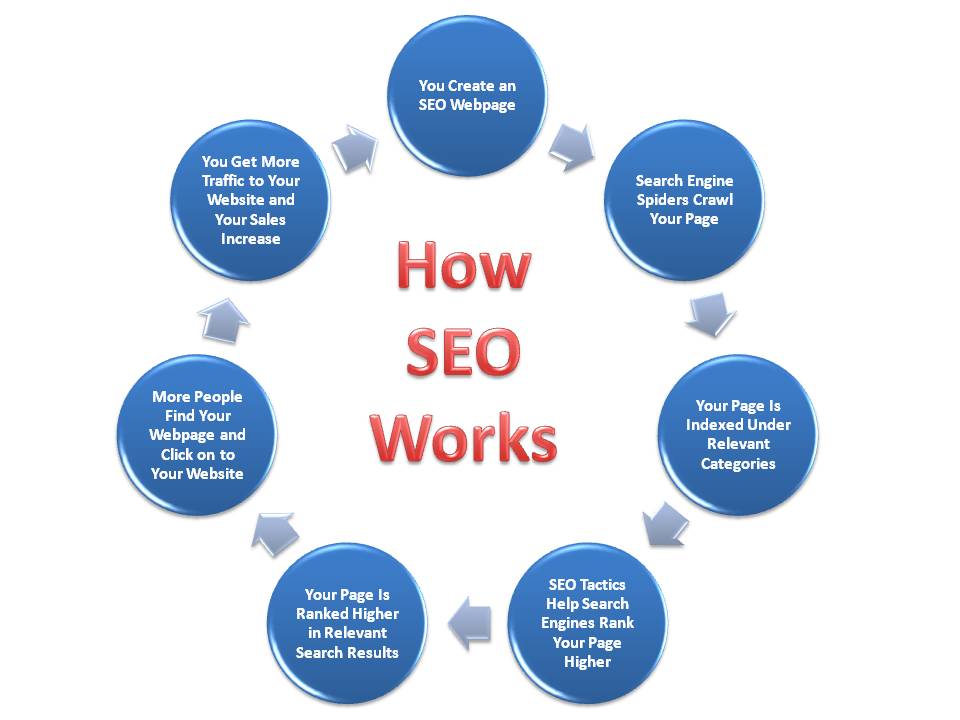
2. How SEO Marketing Can Be Used to Create Sales
SEO marketing can be used to create sales. In fact, the fastest growing companies (those with 20% or more sales growth per year) put a priority and focus on SEO. To demonstrate how this works, consider your online conversion funnel. Here are the steps that a potential customer usually takes when they are looking for something online and how SEO can move them along that funnel.
Step 1: Search Engine Visibility: A potential customer will go to a search engine and type in what they are looking for. That is why it is important that your website rises higher. That is why SEO is so important. It's key to getting more leads to your website and therefore more sales.
Step 2: Website Click Through: Your potential customer will then click through to one of the websites listed on the search engine results page. Hopefully that website is yours. Having an appealing and effective page title and meta description will also help in getting user to choose your site over the other sites listed on the SERP. Making effective page titles and meta descriptions are also a part of SEO.
Step 3: Perform a Lead Action: Once a visitor reaches your site, you want to have a very clear "call to action" that will get them to perform a lead action. It could be to buy something in an e-commerce store, download an e-book, sign up for e-newsletters, fill out a contact form, or whatever other action that you want your customer to take. Again, part of SEO is making clear and highly visible call to action links or buttons to help get your customer to perform a lead action and make that final conversion.
As you can see, SEO is extremely important in actually generating sales for your website.
SEO also will give you one of the highest returns on your investment. Listen to how in our podcast "What 3 Marketing Methods Have The Best Return On Investment"
Step 1: Search Engine Visibility: A potential customer will go to a search engine and type in what they are looking for. That is why it is important that your website rises higher. That is why SEO is so important. It's key to getting more leads to your website and therefore more sales.
Step 2: Website Click Through: Your potential customer will then click through to one of the websites listed on the search engine results page. Hopefully that website is yours. Having an appealing and effective page title and meta description will also help in getting user to choose your site over the other sites listed on the SERP. Making effective page titles and meta descriptions are also a part of SEO.
Step 3: Perform a Lead Action: Once a visitor reaches your site, you want to have a very clear "call to action" that will get them to perform a lead action. It could be to buy something in an e-commerce store, download an e-book, sign up for e-newsletters, fill out a contact form, or whatever other action that you want your customer to take. Again, part of SEO is making clear and highly visible call to action links or buttons to help get your customer to perform a lead action and make that final conversion.
As you can see, SEO is extremely important in actually generating sales for your website.
SEO also will give you one of the highest returns on your investment. Listen to how in our podcast "What 3 Marketing Methods Have The Best Return On Investment"
3. Why is SEO Marketing Important to Your Business?
According to Fleishman Hillard 89% of customers begin their buying process with a search engine like Google or Bing. In fact, the "United States Ecommerce Country Report" found that an incredible 88% of consumers do research online about what they are going to buy before they make both online and in-store purchases.
That means that the vast majority of people start their buying process by finding businesses that show up in search engine results. This is another great reason why SEO is so important for the growth of your sales.
In addition to helping your business get found and rank high in search engine results, SEO has some great other benefits. Because SEO gets you to improve your sites so that search engines will rank them better, these improvements will also give your visitors a better experience.
SEO Marketing Can Help You Improve Brand Awareness
Because you will be getting more visitors to your website through SEO tactics, you will in essence be also increasing your brand awareness which will make people more aware of your company and in turn encourage more customers to purchase from you.SEO Will Improve Your User Experience
By implementing good SEO practices, you will also be giving your users a much better experience. The high quality, relevant content the search engines are looking for will make your visitors happier with your website as it will answer the queries they have and in turn build trust with them.SEO Will Increase Your Inbound Leads
If someone is already looking for your product or service online, they are closer to buying than someone who isn't. SEO will help your business get found easier by customers who are already looking for your product or service. These are known as inbound leads.SEO Will Increase Your Sales
Because SEO does such a great job of not only getting more traffic to your website, but that traffic is already looking for what you sell. Bringing more higher quality leads to your site will mean more conversions and more conversion will mean that you will see a significant increase in your sales.
SEO will increase sales for your business and will give you an outstanding return on investment
4. What Role Does SEO Marketing Play in an Entire Digital Marketing Strategy?
SEO should play an integral part of your digital marketing strategy. SEO helps people find your business online. A website that doesn't use SEO marketing is like a "bricks and mortar" store that has no exterior signage. You may have a great business with great products or services, but no-one will know about it because they can't easily find you. An optimized website will make your business easier to find; it will help your customers find you from among the thousands of other companies online.
Almost 74% of consumers use a search engine to find information about local businesses. To make sure that your business gets found by those potential customers, you need to incorporate SEO. An effective SEO marketing plan will make sure that your company ranks high in search engine results.
Here are some other ways in which SEO Marketing can be extremely helpful in your entire digital marketing strategy:
a. Gets people to find your business: SEO is a key factor in getting your website to rank high in search results so that your potential customers can easily find your business.
b. Gets people who know your business interested in what you are selling: Providing quality SEO content on your website will better inform and educate your customers are your products and services as well as answer any questions they may have.
c. Can convey a message (written, audio, visual (pictures and video) that will convince prospective customers that they desire your product: A wide variety of high-quality, multi-media SEO content will give your customers a more well-rounded view of what you are selling. They will better be able to visualize it and get excited about purchasing it.
d. Can be the vehicle for prospective customers to actually buy (e-commerre) or start the sales process (filling out a contact form): SEO can provide your customers with an easy way to actually purchase your products of services. A well-laid out e-commerce site will make the buying process easier and enjoyable for your customers. If you don't have an e-commerce site, then an easy-to-follow contact form can put your customers in touch with you so you can provide them with exactly what they want.
e. Works to collect prospect information for email marketing (lead captures): You can use SEO to get important information such as names and email addresses that you can use in bulding up your email list. Providing free downloads of helpful tools of information such as calculators, e-books, infographics, etc. is a win-win situation for both you and your customers.
f. Can be a means to interact with customers and propsective customers (live chat): SEO can also provide a way for you to interact with your prospective customers. By using a live chat on your site, you can communicate and answer any questions that your customers may have in "real time" thus improving their experience and building rapport with them.
Learn more by listening to our podcast "When A Company Should Consider Doing SEO"
Almost 74% of consumers use a search engine to find information about local businesses. To make sure that your business gets found by those potential customers, you need to incorporate SEO. An effective SEO marketing plan will make sure that your company ranks high in search engine results.
Here are some other ways in which SEO Marketing can be extremely helpful in your entire digital marketing strategy:
a. Gets people to find your business: SEO is a key factor in getting your website to rank high in search results so that your potential customers can easily find your business.
b. Gets people who know your business interested in what you are selling: Providing quality SEO content on your website will better inform and educate your customers are your products and services as well as answer any questions they may have.
c. Can convey a message (written, audio, visual (pictures and video) that will convince prospective customers that they desire your product: A wide variety of high-quality, multi-media SEO content will give your customers a more well-rounded view of what you are selling. They will better be able to visualize it and get excited about purchasing it.
d. Can be the vehicle for prospective customers to actually buy (e-commerre) or start the sales process (filling out a contact form): SEO can provide your customers with an easy way to actually purchase your products of services. A well-laid out e-commerce site will make the buying process easier and enjoyable for your customers. If you don't have an e-commerce site, then an easy-to-follow contact form can put your customers in touch with you so you can provide them with exactly what they want.
e. Works to collect prospect information for email marketing (lead captures): You can use SEO to get important information such as names and email addresses that you can use in bulding up your email list. Providing free downloads of helpful tools of information such as calculators, e-books, infographics, etc. is a win-win situation for both you and your customers.
f. Can be a means to interact with customers and propsective customers (live chat): SEO can also provide a way for you to interact with your prospective customers. By using a live chat on your site, you can communicate and answer any questions that your customers may have in "real time" thus improving their experience and building rapport with them.
Learn more by listening to our podcast "When A Company Should Consider Doing SEO"
Originating Sources of Website Traffic
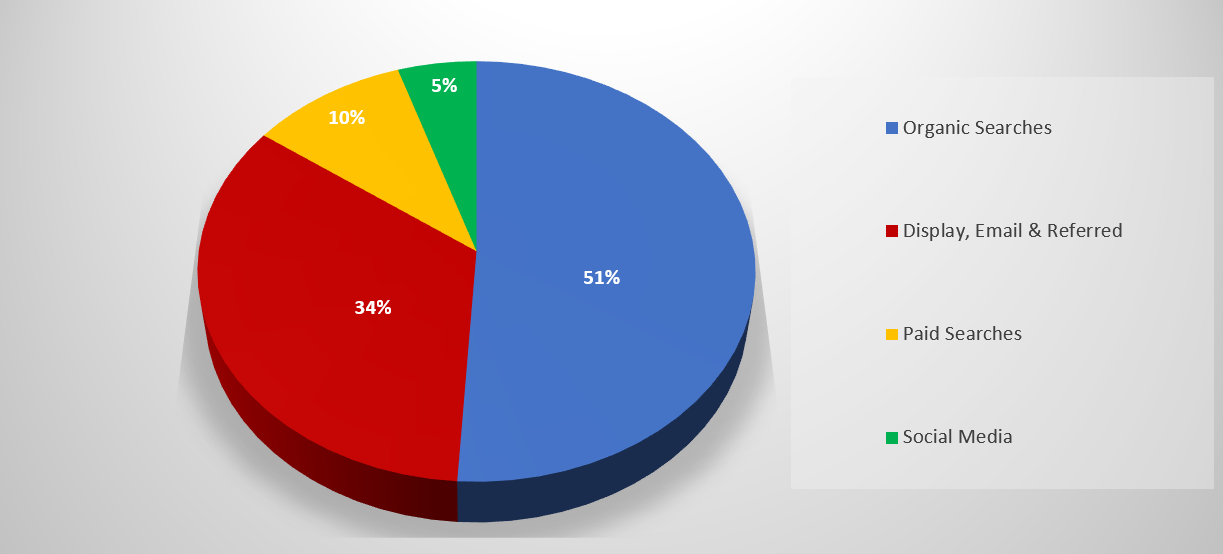
Organic searches account for more than half of all website traffic
Sources: SearchEngineLand & Bright Edge research
5. How is SEO Marketing Different for Google vs Bing?
Google is by far the most used search engine, however Bing still has a large following especially with the older age, blue collar demographic mostly located in the United States. In 2020 Google's share of the search engine market is over 90% whereas Bing's is about 2.5%. Google and Bing both reward sites that have high quality backlinks, but Bing stresses the quality a bit more and Google stresses the number of backlinks that you have. They also both take location into account when they are compiling search results so adding geo-specific keywords is important. However there are some key differences between the two seach engines. These include:
The following two images show the difference in search results between Google and Bing using the same keyword "used cars." You'll notice that Auto Trader comes up as the first organic site in both search engines, however the second, third, fourth, etc. places are different.
- Bing concentrates on exact keywords but Google looks at the keyword context as well as the keyword itself
- Bing places a greater emphasis on multimedia than Google does, giving higher rankings to sites with videos and photos
- Bing is better able to interpret websites that incorporate Flash than Google can.
The following two images show the difference in search results between Google and Bing using the same keyword "used cars." You'll notice that Auto Trader comes up as the first organic site in both search engines, however the second, third, fourth, etc. places are different.
Google Search Results
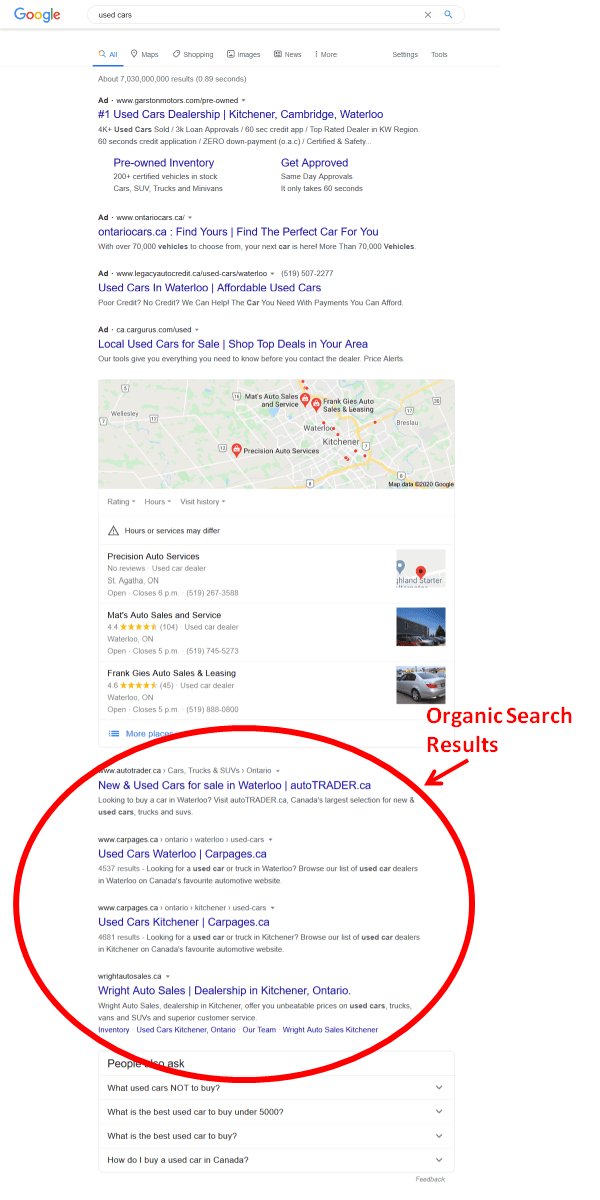
Bing Search Results
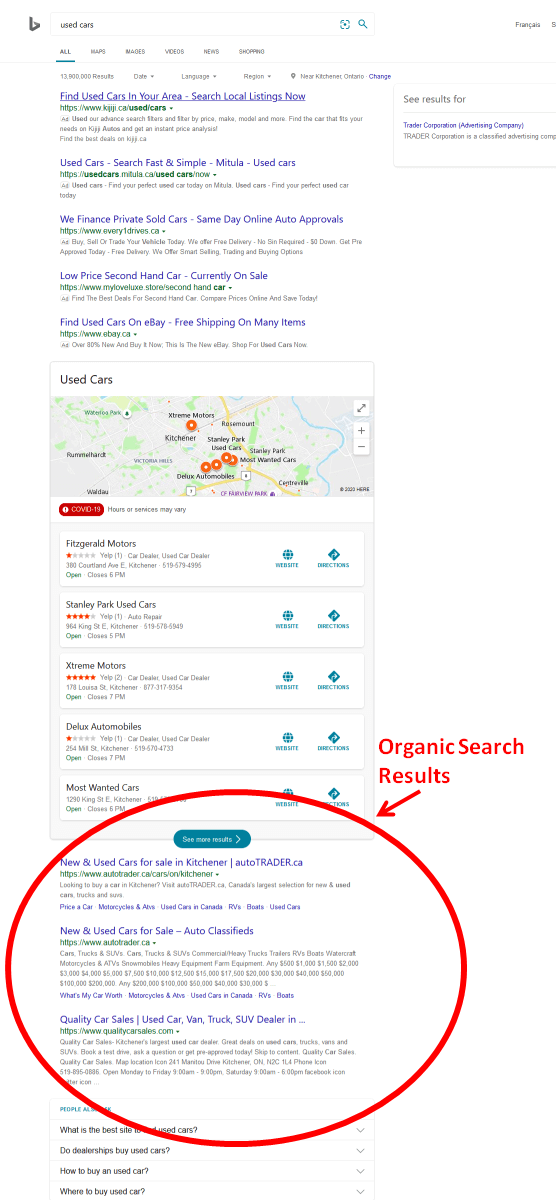
6. How is SEO Marketing Different Than Google Ads or Bing Ads?
Both SEO and Google Ads or Bing Ads get your webpages to show up on search engine results, however there are some key differences.
With SEO, on the other hand, you don't have to pay for your positions on the search results pages. Instead, you produce content and employ SEO techniques on your pages to help them "organically" move up in the rankings. You may decide to pay for a company to do SEO for you, but you never have to pay the search engine to move you up in the rankings.
With SEO, you decide which keywords you want to appear for and then create content that targets those keywords and places the keywords in strategic locations such as the page title and the meta description. The search engines will then rank you accordingly.
With Google Ads and Bing Ads You Pay for Your SERP Position
The biggest difference between SEO and Google Ads or Bing Ads is that fact that you need to pay for Google and Bing Ads. SEO is organic and Google Ads or Bing Ads are paid. So with Google and Bing Ads, you are paying to have your advertisement show up higher on the search results page than your competitors. They use a bidding system where the more you pay, the higher up on the page your ad will appear in the results.With SEO, on the other hand, you don't have to pay for your positions on the search results pages. Instead, you produce content and employ SEO techniques on your pages to help them "organically" move up in the rankings. You may decide to pay for a company to do SEO for you, but you never have to pay the search engine to move you up in the rankings.
With Google Ads and Bing Ads You Pay per Click
The other big difference between Google and Bing Ads and SEO is that with your Google and Bing Ads, you need to pay each time someone clicks on your advert. This is known as a pay-per-click system. With SEO, however, you don't have to pay if someone clicks on your webpage on a search results page.With Google Ads and Bing Ads You Pay for Keywords
If you are using Google or Bing Ads, you will create an advert and then select which keywords you want to appear for.With SEO, you decide which keywords you want to appear for and then create content that targets those keywords and places the keywords in strategic locations such as the page title and the meta description. The search engines will then rank you accordingly.
Google Ads

Bing Ads
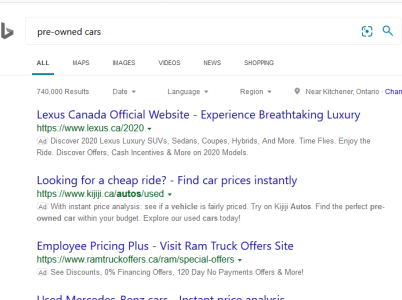
Organic Search
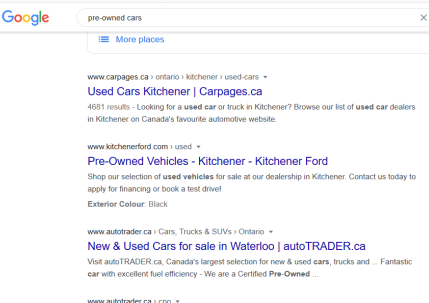
SEO is organic while you need to pay for Google Ads and Bing Ads
7. How Do I Do SEO Marketing?
You can do SEO marketing in-house or you can outsource it to a company that specializes in SEO. SEO is something that you can learn, however because there is so much involved, it does take time to learn, understand, and execute. In addition, to create the high quality content that Google is looking for you will also need a high level of copywriting ability.
Many companies find that outsourcing their SEO is a very cost and time-effective way to do SEO Marketing. SEO will give you a very high return on your investment so it is worth the money to have professionals who have the experience and the skills already, to do it for you.
Many companies find that outsourcing their SEO is a very cost and time-effective way to do SEO Marketing. SEO will give you a very high return on your investment so it is worth the money to have professionals who have the experience and the skills already, to do it for you.
8. What Does SEO Mean in Marketing?
When you market your business, your goal is to build your brand, generate quality leads, educate your audience about what you are offering, and upsell your existing customers.
So what can SEO mean for your marketing strategy? Above all, SEO can get your business seen. When customers are searching online for a business in your market, a good SEO strategy will ensure that they find your business. This will help you generate those quality leads that you are looking for, show people what you are offering so they can get it and bring your business back in view of your existing customers so that they will buy from you again.
So what can SEO mean for your marketing strategy? Above all, SEO can get your business seen. When customers are searching online for a business in your market, a good SEO strategy will ensure that they find your business. This will help you generate those quality leads that you are looking for, show people what you are offering so they can get it and bring your business back in view of your existing customers so that they will buy from you again.
SEO Can Make Your Traffic Skyrocket Over Time
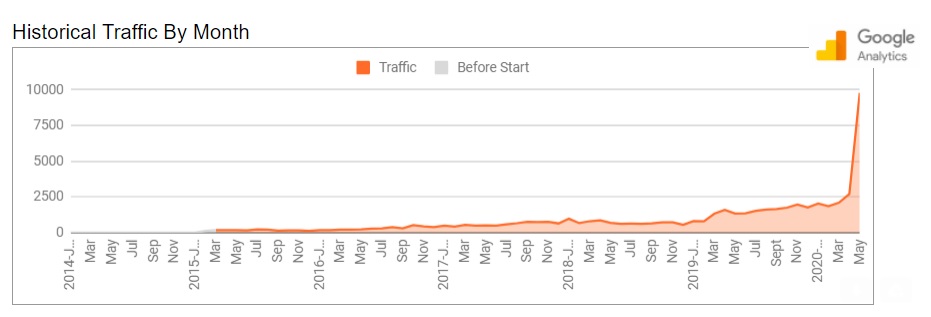
9. What is New in SEO Marketing in 2020?
1. User Intent:
In 2020 and on, Google will be shifting its focus more towards user intent than simply matching keywords. In order to adjust your SEO strategies to accommodate this shift, you need to:- Include content that covers the needs that your customers have after their purchase. According to Keith Goode, Sr. SEO Strategest for IBM, You need to give them "support, opportunities to advocate, community-building and staying relevant for future purchases."
- Build trust with your customers, letting them know that you are on their side so that you can develop a long-term relationship with them.
- Talk to your customers to find out about their journey to purchase. Ask things like how they performed their search and what their experience was like on your website, then use that information to influence changes to your strategies.
2. High Quality Content
High quality, optimized content will continue to be extremely important in 2020. You need to include content that is relevant and valuable to your audience. Your goal should be to have the best content on the web for your topic. To accomplish this you will need to either learn how to write well or hire people who have this ability.
3. Overall Reputation
Your company's overall reputation will affect how Google ranks you in 2020. Google looks for expertise, authoritativeness and trustworthiness of your business or the people who produce content for your business and rank the better ones higher. Google will take into account things like reviews and feedback on your business as well as technical and security issues on your site.Click here to listen more about the Top 3 SEO Trends for 2020.
SEO is worth the wait!
10. How Long Does It Take for SEO Marketing to Work?
The time that it will take for you to see results with your SEO marketing will depend on a few things such as:
Click here to listen to our podcast "How Long Does It Take To See SEO Results?"
Your SEO Company Needs Time: There are a couple of reasons why SEO takes so long. On one hand it takes time for your SEO company to do the necessary market and industry research for your company, perform the necessary analyses and then produce the high quality SEO optimized content that Google is looking for in order to move your site up in the rankings.
Google Needs Time: On the other hand, it takes Google time to recognize your website and assign it the authority it deserves. Google has to pick up on the changes you have made and compare the quality of your content to everyone else's content that you are competing against. Google also wants to see regular content updates, link acquisition, and on-site optimization. This will build your website's credibility with Google.
High Quality Content Takes Time to Create: Google is looking for good quality content and honestly good quality content takes time to create. Your content needs to demonstrate that you are an authority on your topic and that you are quickly answering the questions that customers have. You then need to promote your content properly. Google will track the number of people who see it and how many bounces you get. They will also look at the number of high quality links you have.
Click here to learn more about why SEO takes so long.
However, at the same time that you are putting out high quality content, you probably have competitors that are trying to do the same thing. The competition is intense. SEO marketing is seen as such an important tool for businesses today that it is taught in universities; and larger companies will even have SEO departments or they will outsource it to agencies.
Your competition sees the value in SEO and in order to compete, you will need to keep up with it too. But if your competition has been doing SEO for a while, it will take you time for your website to catch up and pass them. The sooner you start, the faster that will happen.
To learn more, listen to our podcast "The 3 Most Important Factors To Compare Yourself To Your Competitors On When It Comes To SEO "
SEO is not a way of generating sales quickly it takes time. You probably won't see results in the first 3 months. But, if you are willing to invest in the time that it takes, then SEO is an extremely effective marketing tactic that is worth the wait because it will generate one of the best return on investments possible for your business.
If you don't have the time, effort, or expertise required to do SEO in-house, we can help.
Listen to our podcast "Why it is worth waiting for SEO results" to learn more.
- How long your website has been around
- What shape your website is in
- How much if any SEO marketing has been done on it before
- How much content you have on your website
- What kinds of links you have
- Your geographic location
- Your competition
Click here to listen to our podcast "How Long Does It Take To See SEO Results?"
So Why Does SEO Marketing Take So Long?
Your SEO Company Needs Time: There are a couple of reasons why SEO takes so long. On one hand it takes time for your SEO company to do the necessary market and industry research for your company, perform the necessary analyses and then produce the high quality SEO optimized content that Google is looking for in order to move your site up in the rankings.Google Needs Time: On the other hand, it takes Google time to recognize your website and assign it the authority it deserves. Google has to pick up on the changes you have made and compare the quality of your content to everyone else's content that you are competing against. Google also wants to see regular content updates, link acquisition, and on-site optimization. This will build your website's credibility with Google.
High Quality Content Takes Time to Create: Google is looking for good quality content and honestly good quality content takes time to create. Your content needs to demonstrate that you are an authority on your topic and that you are quickly answering the questions that customers have. You then need to promote your content properly. Google will track the number of people who see it and how many bounces you get. They will also look at the number of high quality links you have.
Click here to learn more about why SEO takes so long.
Your Competition Is Doing SEO Too
However, at the same time that you are putting out high quality content, you probably have competitors that are trying to do the same thing. The competition is intense. SEO marketing is seen as such an important tool for businesses today that it is taught in universities; and larger companies will even have SEO departments or they will outsource it to agencies. Your competition sees the value in SEO and in order to compete, you will need to keep up with it too. But if your competition has been doing SEO for a while, it will take you time for your website to catch up and pass them. The sooner you start, the faster that will happen.
To learn more, listen to our podcast "The 3 Most Important Factors To Compare Yourself To Your Competitors On When It Comes To SEO "
SEO Marketing Is Worth the Wait!
SEO is not a way of generating sales quickly it takes time. You probably won't see results in the first 3 months. But, if you are willing to invest in the time that it takes, then SEO is an extremely effective marketing tactic that is worth the wait because it will generate one of the best return on investments possible for your business. If you don't have the time, effort, or expertise required to do SEO in-house, we can help.
Listen to our podcast "Why it is worth waiting for SEO results" to learn more.
To learn more about why SEO Marketing takes time, listen to our podcast:
Why Is It So Hard To Rank Online? - Pt. 3: It Takes Time
11. Does Duplicate Content Hurt Your SEO Marketing?
When you have content on the Internet that appears in more than one place (at more than one URL), that is known as duplicate content. If you have the same material or very similar material at more than one web address, then that can impact your rankings in search engines. Google outlines their duplicate content guidelines here. Google also gives you suggestions about how to address duplicate content such as using 301 redirects and consolidating pages that are similar.
According to Google, "Duplicate content on a site is not grounds for action on that site unless it appears that the intent of the duplicate content is to be deceptive and manipulate search engine results. If your site suffers from duplicate content issues, and you don't follow the advice listed above, we do a good job of choosing a version of the content to show in our search results."
According to Google, "Duplicate content on a site is not grounds for action on that site unless it appears that the intent of the duplicate content is to be deceptive and manipulate search engine results. If your site suffers from duplicate content issues, and you don't follow the advice listed above, we do a good job of choosing a version of the content to show in our search results."
12. How to Do SEO Marketing?
Keyword research:
Keyword research involves researching the words people type into search engines and then using that research to create targeted content that will drive the right traffic to your site. It can help you answer questions like "What are my customers searching for?" "How many customers are searching for it?" and "What format do they want that information?" Your research will also give you new ideas for blog posts and keep you up-to-date with the language people are using to do searches.Keyword research isn't just a once-off task. It's something that you need to do on a regular, ongoing basis. Search language is constantly changing and shifting and new keywords are being used all the time. In order to keep up with and fulfill the needs of your audience, you need to be regularly taking a look at the ways your customers are searching, and especially looking at the ways that they are searching for content within your particular niche of the internet. It is a good idea to do keyword research when you are creating a new website or website content, writing a new blog post, wanting to promote a certain product or service, restructuring your website and consolidating your content.
Keyword strategy:
The competition for the most popular keywords is fierce. It's very difficult to compete against large, well-established sites that search engines like Google consider to have greater domain authority than your site. So is there hope? Yes. Instead of trying to compete against the big guys for the most popular keywords, you can instead implement a keyword strategy to target keywords that your target market is still searching for, but have less competition. That's where keyword research comes in and that's why it is important to be able to do it right.You can't simply make a list of the keywords that you want to rank for off the top of your head and be very successful. You need to have a strategy and a process in place. You need to use an online tool such as Google's keyword planner, to find out how popular the keywords are and how hard it would be to rank for them. Generally speaking, the higher the search volume, the higher the competition will be for that keyword and therefore it will require more work and time get a higher ranking for that term. On the other hand, if the search volume is too low, then it might not be worth spending the time and money trying to rank for it as it may not bring customers to your site. So the key to keyword success, is knowing how to get the right balance between going after a keyword that is going to bring in the right kind of traffic yet not have too much competition.
Keyword research tools can also give you other related keyword suggestions that maybe have less competition and that you actually have a chance of ranking for. You will then want to make a list of all of the keywords that you want to target.
You can also employ a keyword strategy of using long-tail keywords. Being able to use long-tail keywords to your advantage is a great way to bring customers that are more likely to buy to your website. Because long-tailed keywords have lower competition, they are also usually easier to rank for. Here's how a long-tailed keyword can work for you. Say, for example, you are a business that sells special spice blends for pizza, dips, and sauces. If you target the keyword "pizza" you will have incredibly high competition and will be going up against all the top pizza restaurants. People searching for pizza could want to order a pizza, want to know the nutritional value of pizza or want a good recipe. If you instead target the long-tailed keyword "gourmet pizza spice blend" you will automatically have less competition and you will be reaching customers who are already interested in the product that you have to sell.
Content strategy:
Having high quality content will appeal both to your website visitors and to search engines. If you have lots of high quality content on your site, then your visitors are more likely to spend more time on your site, reading that content and hopefully will become a conversion. To optimize your site for content, you want to create a variety of content that is well-written and relevant to your visitors. The different types of content that you can have on your site include:- Blog posts and articles
- E-books and white papers
- Infographics
- How-to guides
- Tutorials
- Social media content
- Videos and podcasts
On page SEO:
On-page SEO includes all of the components that you add to your website to help to optimize it. One of the great things about on-page SEO is that you have control over it because you add it to your content. Some of the on-page SEO factors that you can include to help your site rank higher are:- Title tags
- Meta descriptions
- Headings and sub-headings
- Image names and ALT tags
- Internal and external links
Off page SEO:
Off-page SEO can also impact your rankings in search engines. Unlike On-page SEO, Off-page SEO include factors that you don't really have control over, however there are things that you can do to improve your off-page SEO. They include elements such as:Quality Backlinks: You can build trust with Google by building quality backlinks to your site. Backlinks are links from other websites that link to you. If the backlinks come from reputable, authorative sites then seach engines will feel more confident that your site is trustworthy. You can do this by building relationships with influencers and other bloggers who create great content and get them to link to your site.
Social Shares and Likes: A second off-page SEO factor is the number of likes and shares that your site receives. If your content is of a high quality, then it will more likely be shared. You can also encourage influencers to share you content and boost its reach. The more that users like and trust your content, the more search engines will trust it too and thus rank it higher.
Tracking and Measuring Results:
It is important to track and measure your results when you are doing SEO. You need to pay attention to the trends in your data so that you can update and optimize your strategy in order to get better results. There are free resources that have an incredible amount of data about your website and even your competition's such as Google Analytics, that you can access to see how you are doing.The data can actually be a bit overwhelming as there is so much of it and knowing how to interpret it can be difficult. If you have the time and the expertise, you can do tracking and measuring of your results yourself or you can hire SEO experts to do this important task for you.
The following video will tell you more about Google Analytics and all of the information that it can provide you with.
